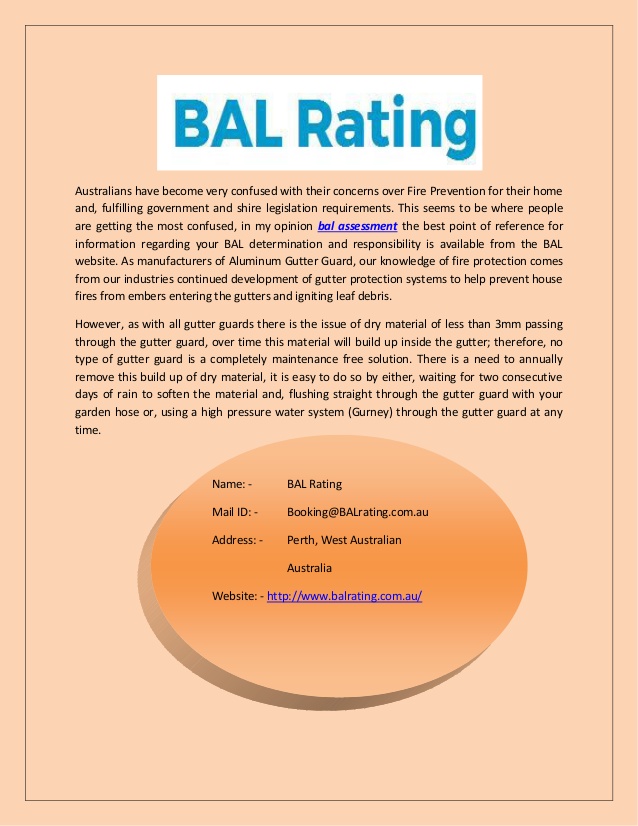What is the Bushfire Attack Level
The Bushfire Attack Level measures the seriousness of a building's potential introduction to coal assault, brilliant warmth and direct fire contact. It is proposed to move forward the protection of structures to bushfire assault from consuming coals, brilliant warmth, fire contact or a mix of these. It applies to structures sited in assigned bushfire-inclined territories, as characterized in the National Construction Code, Volume 2 [NCCV2].
By enhancing the capacity of structures in bushfire-inclined regions to withstand assault from bushfire, there is an expansion in the security stood to building tenants (until the point that the fire front goes) and to the building itself.
Nonetheless, enhancing the outline and development of structures is just a single way that property proprietors can address the harm caused by bushfire. Different measures fall inside the regions of arranging, subdivision, siting, finishing and support.
The bushfire assault level is a measure of the seriousness of a building's potential introduction to coal assault, brilliant warmth and direct fire contact, utilizing augmentations of brilliant warmth communicated in kilowatts per meter squared. Whenever computed, the Bushfire Attack Level Toolbox tool kit gives arranged levels:
BAL– LOW
BAL- 12.5
BAL– 19
BAL– 29
BAL– 40
BAL– FZ
How would we decide BAL
The Bushfire Attack Level Toolbox tool kit applies Method 1 from AS 3959– 2009 to decide the BAL. Technique 1 is a rearranged system to decide the BAL, which includes five stages. This strategy is liable to restrictions on the conditions in which it can be utilized.
There are five stages in deciding the BAL in light of technique 1 in AS 3959– 2009.
Stage 1: Determine the applicable FDI
Stage 2: Determine the ordered vegetation type(s)
Stage 3: Determine the separation of the site from the ordered vegetation type(s)
Stage 4: Determine the viable slope(s) under the grouped vegetation type(s)
Stage 5: Determine the BAL from the proper table
Vegetation arrangement
The vegetation of the site is arranged as per the direction gave in Table 2.3 and the comparing figures in AS 3959– 2009. Where there is more than one vegetation write, every vegetation compose is ordered independently with the most dire outcome imaginable connected. For instance, if there is a blend of prairie and shrubland, at that point the vegetation would be delegated shrubland, as this outcomes in a higher BAL.
When all is said in done, the land cover datasets regularly just present the transcendent vegetation compose. Along these lines, we can't generally decide the "thinking pessimistically" estimation of
BAL assessment WA. This could likewise be controlled by approval on the ground.
AS 3959– 2009 gives a rundown of rejections to low risk vegetation and non-vegetated territories, where the
BAL rating Perth is named LOW. This incorporates vegetation more prominent than 100 meters from the site, little (< 1 ha) zones of vegetation that are additionally in excess of 100 meters from other vegetation and low danger vegetation that incorporates prairie overseen in insignificant fuel conditions. This incorporates yards, fairways, plantations and developed greenhouses, among others. Non-vegetated regions incorporate conduits, streets, structures, trails and rough outcrops.

